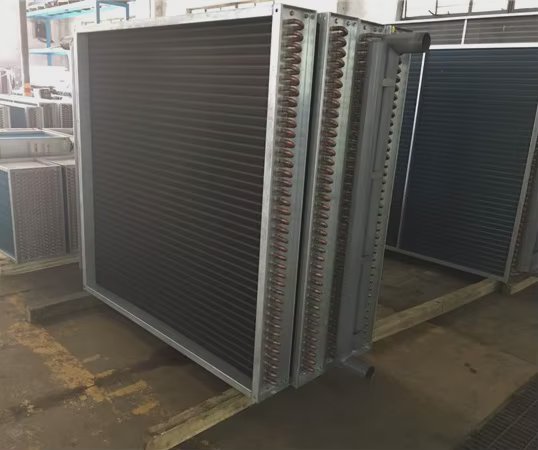The landscape of cooling technology has evolved significantly, particularly with the introduction of microchannel evaporators. These devices are integral to enhancing energy efficiency in various applications, from industrial refrigeration to HVAC systems.
Understanding Microchannel Technology
Microchannel evaporators utilize a series of small, closely spaced channels to facilitate heat exchange. This innovative design allows for a larger surface area relative to volume, optimizing the heat transfer process and improving thermal efficiency. The compact nature of microchannel evaporators makes them ideal for use in systems where space is a premium.
Benefits of Microchannel Evaporators
1. Enhanced Energy Efficiency
Microchannel evaporators can reduce energy consumption by approximately 20-30% compared to traditional evaporators. This is due to their superior heat transfer characteristics, which allow for lower refrigerant charges and reduced compressor loads.
2. Reduced Refrigerant Charge
By utilizing smaller amounts of refrigerant, microchannel evaporators not only lower operational costs but also help in minimizing the environmental impact associated with refrigerant leakage. This is particularly crucial in light of global initiatives aimed at reducing greenhouse gas emissions.
3. Compact Design
The compactness of microchannel evaporators means they can be integrated into tighter spaces, allowing manufacturers to design more efficient systems without compromising performance. This is especially valuable in applications like data centers and commercial buildings, where space efficiency is paramount.
4. Improved Durability
The construction materials used in microchannel evaporators often provide better corrosion resistance and durability. This leads to longer operational lifespans and reduced maintenance needs, making them a cost-effective choice over time.
Applications in Various Industries
Microchannel evaporators are being increasingly adopted across multiple sectors. In the automotive industry, for instance, they are used in advanced climate control systems, providing precise temperature management while minimizing energy use.
In commercial refrigeration, the transition towards using microchannel technology can be seen in supermarket refrigeration units, where efficiency and space management are critical. The use of microchannel evaporators leads to significant energy savings, enhancing the overall sustainability of these operations. For further insights on advancements in this technology, you can explore details about a microchannel condenserson Kaltra.
Future Prospects
As industries continue to prioritize energy efficiency and sustainability, the role of microchannel evaporators is likely to expand. Research is ongoing into new materials and designs that can further enhance their performance. The trend towards smaller, more efficient systems is likely to drive innovation in this area, pushing the boundaries of what microchannel technology can achieve.
A Result
The integration of microchannel evaporators into modern cooling solutions exemplifies the ongoing evolution of thermal management technologies. With their numerous advantages, these systems are not merely a passing trend; they represent a significant leap forward in achieving energy efficiency and sustainability in cooling applications. As the technology matures, its potential applications will likely broaden, making it a cornerstone in the future of HVAC and refrigeration systems.

